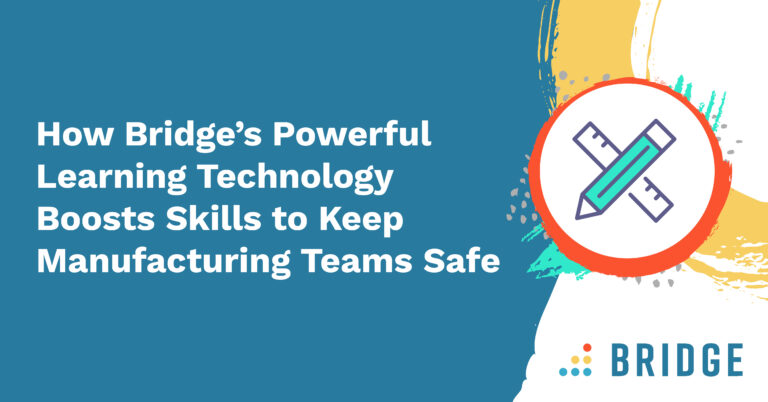Performance conversations and reviews shouldn’t just be a once-a-year deal. Studies show that having regular conversations makes teams more productive and happier. Read on to discover how often you should be conducting performance reviews, and the differences between a performance conversation and an annual appraisal.
Managing employee performance, keeping them appraised of how they are doing in real-time, and nurturing their well-being is a balancing act and needs continuous feedback. With the sheer number of everyday demands that are placed upon managers, it can be easy to fall into the trap of having ineffective conversations or communicating too infrequently.
Here’s a typical scenario: The annual appraisal is on the horizon, and your manager’s first thought is, “When will I find time to get that done?” It falls to the bottom of their to-do list amidst their other demands, and, as the due date approaches, they scramble to prepare something. Desperate, they email a template for a “self-assessment” which may consist of a few questions they threw together. The manager needs input and they figure that the employee is the best person to give an appraisal of their own performance. They inform the members of the team that they need it by end of the day. They read through them and they sound pretty good, so they decide to just adopt the self-assessment as it is. They change a few words here and there, but the self-assessment just became the assessment. Then they meet with each team member to give them the review that the team member wrote themselves.
If elements of this tale seem familiar, it’s because similar stories play out time and time again. This is how easy it is to lose sight of good practice, and how equally easy it is to neglect true appraisals of performance. But this doesn’t need to be the way. Especially in an era of hybrid and remote work, having effective conversations with employees is essential, and it may be time to re-evaluate your company’s current performance processes.
The Changing Nature of the Performance Cycle
We all know that annual appraisals are an important event in any company calendar. They’re a valuable way of measuring employee performance, providing data on KPIs or other company metrics, and evaluating strengths and weaknesses. But for some organizations, this is the only point of contact employees have to talk about performance with their managers. This can be impersonal and means that you’re not getting a well-rounded view of how an employee has performed throughout the year.
Annual appraisals are effective but only if they’re used as one part of a larger picture. We should be shifting from seeing performance reviews as a once-a-year exercise and, instead, viewing them as one data point in a continuous process of measurement. Managers should be in regular contact with their teams throughout the year, through check-ins and performance conversations, in addition to the annual performance review.
MORE FROM THE BLOG | ‘4 Employee Development Conversations Managers Need to Master’
How Often Should We Have Performance Reviews?
Periodic performance conversations can be one of the most effective tools managers have to drive performance, productivity, and employee engagement. The frequency of these conversations will vary depending on the teams, but ideally, they should be held quarterly or semi-annually. Managers should also aim to have more regular one-on-ones in which the focus isn’t solely on current projects, but also on employees’ well-being.
Regular performance reviews alongside regular one-on-ones give managers a better understanding of how their people are doing. These frequent points of contact also make the annual review process easier—if managers go into annual reviews with a better idea of how people have performed throughout the year, they can give an honest, and unbiased review of employee performance.
If these regular conversations can be scattered around, it makes the annual review process much more enjoyable for both parties and can cut down on the work involved. Employees aren’t going in blind to how they’ve performed, and managers don’t need to scramble around to find a year’s worth of supporting documentation. Everything they need to know will have been discussed throughout the year.
RELATED READING | ‘A Word About Employee Appraisal’
What’s the Difference Between a Performance Conversation and an Annual Review?
A successful strategy should include performance conversations alongside the annual appraisal. Here are some of the key differences:
1) Performance Review Conversations Happen Regularly
An annual review is a circled date on a calendar, a fixed point in the year that employees feel distanced from until it comes around again. Performance conversations, on the other hand, should be woven into the fabric of the everyday working routine. As an ongoing process, they allow for a more relaxed exchange of information.
2) Performance Conversations Are Two-Sided
Annual appraisals are a chance for managers to provide feedback about how well employees have performed throughout the year, what they excelled at, and where there’s room for improvement. But this doesn’t leave much room for open conversations. Reviews are one-sided because only managers can weigh in on how they think employees have performed.
3) Performance Conversations Provide Opportunities to Reflect and Plan
The annual review is an overview of all that your employees have completed throughout the year, so it’s likely that it won’t be a reflection of all the hard work they’ve put in. Performance conversations, on the other hand, are a good opportunity to reflect on past successes while planning for the future. Since they’re more regular, it’s easier to track performance metrics and targets and see how things are progressing in real-time.
4) Performance Conversations Put Employees First
For some, appraisals can feel like a tick-box exercise and it’s easy to gloss over a lot of important details. But remember that your employees are all individuals with their own goals and motivations. It’s up to managers to put them at the center of the experience and give them the tools they need to make their career goals attainable.
It’s important to check project statuses, but conversations should go beyond this, too. Managers should be looking out for any signs of burnout and check to see whether employees have any issues, as this could turn into something more significant later on down the line.
YOU MIGHT ALSO LIKE | ‘Putting People First: Why Creating an Employee-First Culture Matters’
The Importance of People-First Managers
Managers are deeply connected to their employees. They’re the first point of contact if there’s an issue, the ones to help them resolve those issues, and the ones to communicate messages from higher up the organization. That’s why continuous communication is essential. Dealing with issues as they arise will mean that they don’t become bigger issues down the line.
Being a people-first manager means encouraging these continuous conversations, making sure that there are regular one-on-ones, and that performance is discussed over the course of the year. When these flexible, ongoing conversations are coupled with quarterly performance check-ins it means that there is transparency. The employee can walk into their annual appraisal knowing exactly how they have performed over the past year and it makes for a far less daunting, and a much more positive and engaging experience for them.
How Can Bridge Help With Better Performance Conversations?
The right processes need the right tools. Bridge is an all-in-one solution for employees to sync with their managers, connect with their peers, plan their career paths, learn new skills, receive coaching, and provide culture feedback—all in one beautifully designed platform.
Leadership Team Post
By: Mark Probert, VP of Revenue



